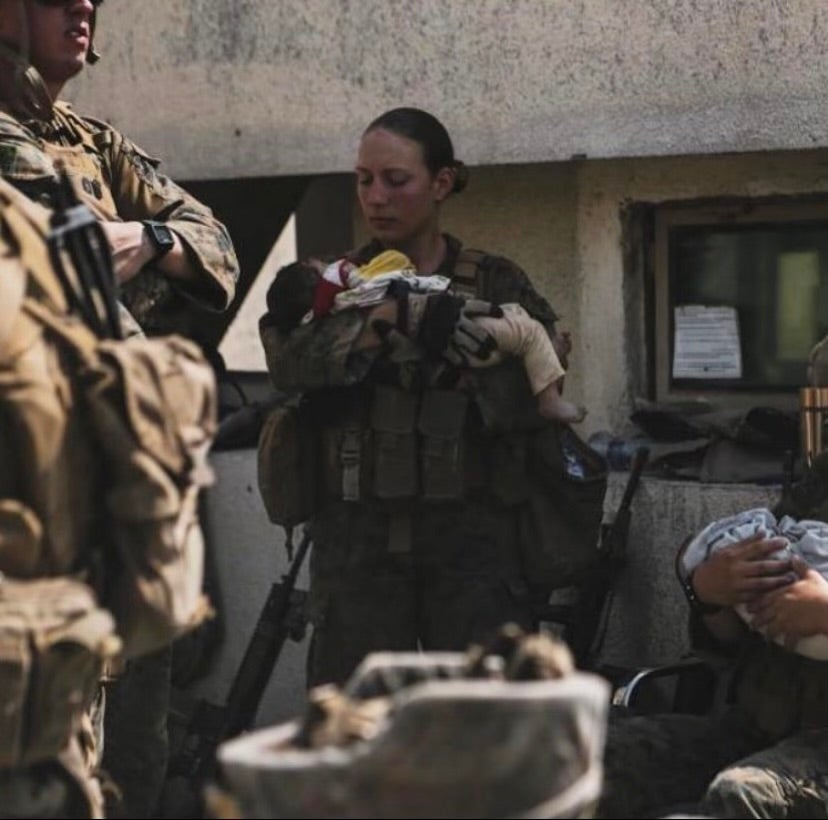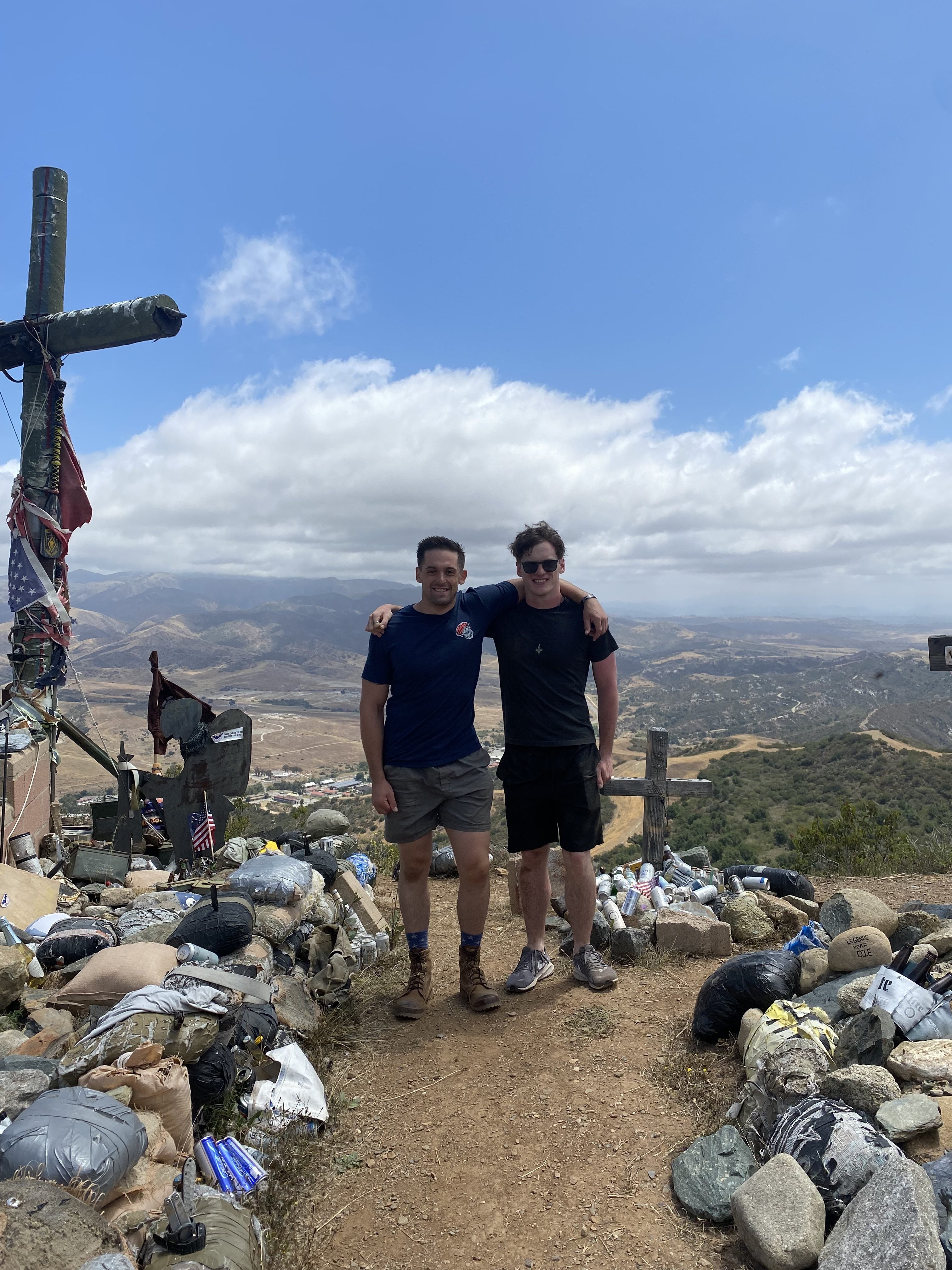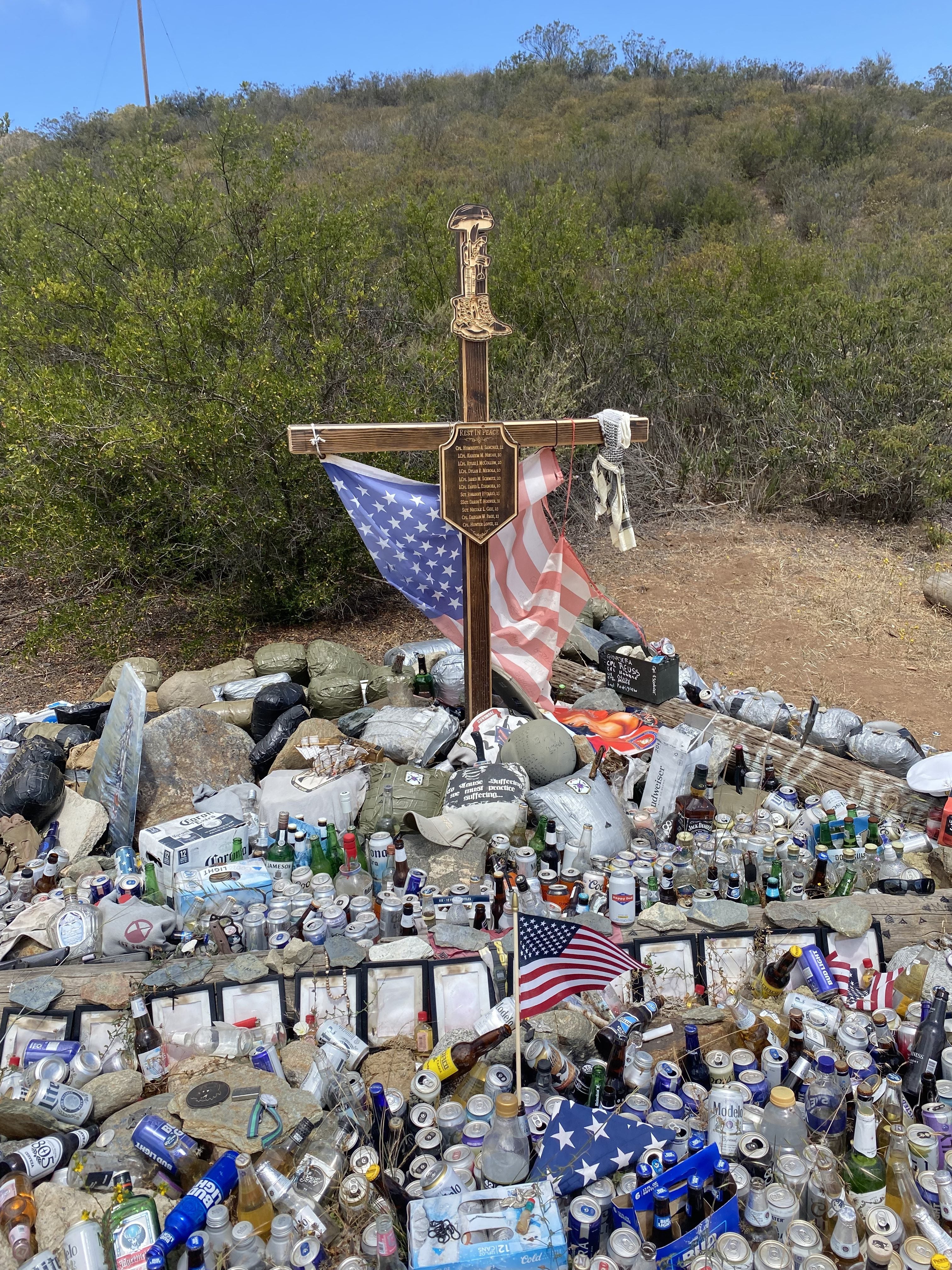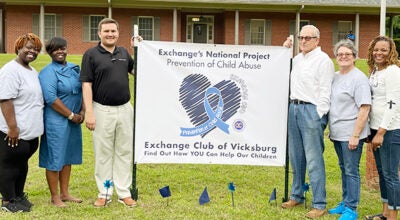‘GOD BLESS THE USA’: Vicksburg’s Fleming brothers honor fallen Marine
Published 2:09 pm Friday, July 1, 2022
“And I’m proud to be an American, where at least I know I’m free. And I won’t forget the men who died, who gave that right to me,” Lee Greenwood sang in his hit song.
Using his woodworking skills, U.S. Marine Corps Sgt. Reagan Fleming, of Vicksburg, constructed a cross.
The Vicksburg native then painted it and adorned it with a red ribbon. The cross also bore the name of his friend — Sgt. Nicole Gee, one of the 13 American service members killed in a suicide bombing attack in Kabul, Afghanistan during the United States’ evacuation from the country on Aug. 23, 2021.
This past Memorial Day, together with his brother, Robert Fleming, the men climbed to the top of Camp Horno, a mountainous hill located at the northern end of the Camp Pendleton Base, in San Diego County, Calif., and in memory of Gee placed the cross among others on what is now considered sacred ground.
Fleming had met Gee at 29 Palms, the Marine Corps Air Ground Combat Center in San Bernardino County, Calif.
“We were students together in 29 Palms,” Fleming said, which is an education center for Marines following boot camp. “This is where you get taught how to do your jobs.”
It was during the year-long school that Fleming and Gee, along with others in their class, formed a “tight-knit group.”
“It was a large group of us, like 100 or so, but that’s a 100 people that wake up and do PT (physical training) together in the morning, go eat breakfast, go to class together after that, and then go to the gym in the afternoon together and then we would all hang out together on the weekends,” Fleming said.
The physical comradery came to a close at the end of the training, and Fleming said the group became scattered — stationed in different areas around the world.
However, with the aid of social media, they were able to stay connected. But with busy schedules, it was sometimes hard to do.
Fleming said he knew Gee had been assigned to a unit in North Carolina but had not realized she had then been sent to Afghanistan.
That was until he saw her on the television with evacuees handing their babies up to her at the Kabul airport.
“She was just standing in the middle of all this chaos holding a baby,” he said.
After seeing his friend, Fleming said, “I messaged her, told her to stay safe and all that stuff.”
And knowing she was probably working 20-hour days, he said he knew she probably wouldn’t have time to respond.
While in Afghanistan, Fleming said, Gee had been part of a Female Engagement Team (FET).
“Since local customs in the Middle East don’t allow men to do pat-down searches on women, she and a team of other female Marines were selected to vet female refugees and load them up for evacuation,” he said. “She was basically doing that day and night.”
Fleming described his friend as selfless, hardworking and kind.
“She was always one of the best. Never a bare-minimum type person — never slacking off or giving excuses,” he said. “And if someone was in need, she was always the first person to help out.”
The way Gee had conducted her life, is the reason Fleming said, he decided to climb to the top of Camp Horno and place a cross in her honor.
Built during the Korean War, Camp Horno is the home of the 1st Marine Regiment. In 2003, it became a place to memorialize fallen service members and a cross was erected by a group of Marines. The cross was destroyed in 2007 by a brush fire but was replaced in 2008 with one that is fireproof.
Fleming said Camp Horno now has 40 to 50 crosses at its peak.
Robert Fleming described the trek up the hillside as challenging.
“On the surface, it was a very strenuous hike, probably one of the most strenuous I have been on in my life,” Robert said.
“But the whole time I knew I was doing it for a good cause, and that is what kept me going because I knew Reagan had lost his friend and I knew it meant a lot to him and I wasn’t fixing to give up on him,” he said.
Reagan said tradition holds that if you are hiking up the hill for the first time, you must carry a rock.
For Robert, it was his first time. He said he had planned to get a rock from the hotel parking lot where he was staying with his father and mother, but forgot.
He was reminded before the hike and began looking for one to take with him.
“I looked around and we were in this sort of limestone parking lot and my eyes locked on this rock that was about the size of a baseball cap and I picked it up,” Robert Fleming said.
With rock in hand, they began their ascent.
“It was pretty hard to keep the rock in your hand while you were trying to climb up the mountain because one — your hand would get tired holding it and many times the slope would go up to almost above 70 degrees so you had to get on your hands and knees and I had to keep the rock in my hand while I was basically crawling up the mountain with the others,” Robert said.
The others in their group were Marine friends of Reagan Fleming — Zachary Woodlock, Jehu Alvarez, Fidel Diaz and Devin Rebstock.
Robert Fleming, who will be a junior at Mississippi State University, said he had studied a little bit about the geology of the area and had learned the rocks at Camp Horno are very sedimentary.
“They are made of sandstone because the place used to be an ocean, so they crumble very easily,” he said, which made the climb up more difficult.
This, however, didn’t discount the immense significance of the hill.
“The experience of getting to the top was very eye-opening,” Robert said.
“There were the crosses, cans of beer, sandbags with pocketknives stuck into them, even munitions,” Robert said.
“It was the Marines’ unique way of expressing tributes to their fallen brethren because these are the things they worked with every day and they became pretty much a part of their lives up until they died,” Robert said. “So, they knew these would be symbols of what they did, their occupation and service.”
“Basically, people will bring things to leave for the individual being memorialized,” Reagan said. “Most commonly are bottles of alcohol, but it could be anything. I have seen footballs, boxing gloves and Star War helmets.”
Robert said he was glad he got to accompany his brother on this journey.
“This woman was good friends with my brother, and I could just imagine how he must have been feeling. I never got to know her, but this was my way to be involved in her story and her legacy,” he said.
Reagan Fleming said honoring his friend had been “bittersweet,” and likened it to the Camp Horno experience.
There were struggles climbing up the hill, he said, but once at the top, the view offered perspective.
“When you look forward you can see Camp Pendleton and when you look behind you, you can see the ocean, so it makes you think about it (life) a little bit harder,” Reagan said. “God bless the USA.”









